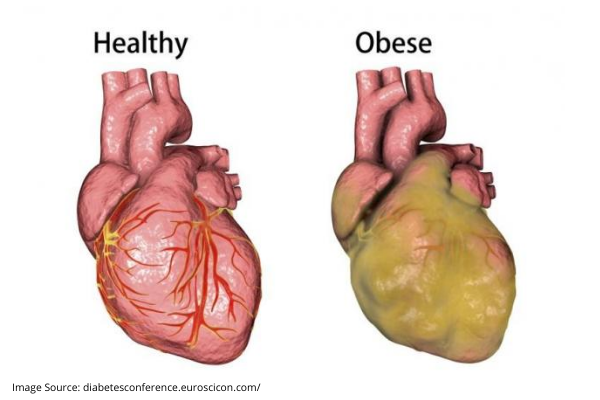

IS HEART DISEASE RELATED TO OBESITY?

The best way to find out if you are prone to heart disease is by getting onto your bathroom scales! And if you don’t like the numbers seen, you are not alone as obesity is a fast-growing global epidemic affecting people in both the developed as well as the developing worlds. Almost half the world population is gradually getting onto the heavier side, and it isn’t only our sense of self-esteem that’s getting to suffer, but our hearts too; even a few extra kilos can become a burden to the ever-working heart.
Though obesity has now been linked directly to heart disease and fatal strokes, these aren’t the only health issues it creates. Other conditions like type 2 diabetes, gallstones, osteoarthritis, respiratory issues, certain cancers, high blood pressure, depression and atherosclerosis can also arise as a result of being overweight. Since losing or gaining weight is all in your hands, the ability to reduce the risk and danger for these diseases eventually lies in your hands too.
Obesity means that your heart has to work harder in order to compensate for the larger body mass. It also means that the heart now has to pump more blood than it did before and in order to succeed in this quest, the heart becomes slightly larger instead of beating more often. This helps it to pump out more blood with each beat….a little bit like a tap that has been opened up a little more. This increased flow of blood now goes on to create further issues with the arteries as it creates greater pressure on the arterial walls. This leads to high blood pressure which is the basis for many heart conditions.
In some people the blood pressure may not rise, but this doesn’t mean that the heart isn’t being over-stressed. The heart loses some of its squeezing capacity when its chambers grow larger (to accommodate the larger blood volumes) and this means that the heart doesn’t empty itself out with each squeeze (or beat), resulting in blood pooling in the heart and leading to congestive heart failure.
Obesity affects other organs too, especially when weight is centered around the abdomen. Large amounts of belly fat translate into a tendency towards type 2 diabetes, a condition that’s detrimental to the heart. Excess body fat can also lead to arterial deposits of LDL cholesterol, a condition known as atherosclerosis that eventually leads to heart attack or stroke.
So according to recent conclusions, obesity can lead to high cholesterol, high blood sugar, high blood pressure and an enlarged heart, all of which are linked to an increased risk for heart disease and stroke.
High-calorie diets and lack of sufficient exercise is to be blamed for the current increase in obesity cases. However, obesity shouldn’t be seen as a personal failing or a death sentence; after all, with a few lifestyle changes, the chance to reshape your heart health lies in your hands alone!














